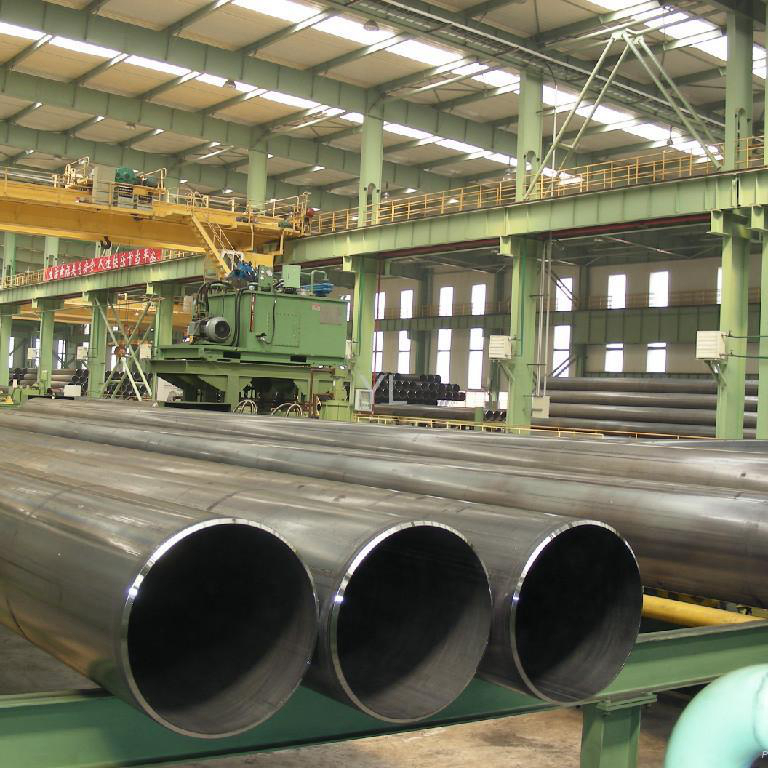Сер . 01, 2024 10:11 Back to list
High Quality Mild Steel Pipe Manufacturers in China for Exporting Premium Industrial Solutions
The Surge of High-Quality Mild Steel Pipe Factories in China
In recent years, China has emerged as a leading exporter of high-quality mild steel pipes, a trend driven by a combination of advanced manufacturing technologies, competitive pricing, and a robust supply chain. Mild steel, known for its versatility and strength, is extensively used across various industries, including construction, automotive, and manufacturing. This article explores the factors contributing to the growth of mild steel pipe factories in China, the quality standards they adhere to, and their impact on global trade.
Advanced Manufacturing Techniques
One of the primary reasons for the success of mild steel pipe factories in China is the adoption of advanced manufacturing techniques. Many factories leverage automation and precision engineering to enhance production efficiency and reduce wastage. Techniques such as seamless pipe production and continuous casting have enabled manufacturers to produce high-quality pipes that meet international standards. Furthermore, the utilization of Computer Numerical Control (CNC) machinery allows for precise fabrication and customization of pipes, catering to the specific needs of clients worldwide.
Quality Control and Standards
Quality assurance is paramount in the manufacturing of mild steel pipes, especially as the global market becomes more competitive. Chinese factories adhere to stringent quality control measures, often obtaining certifications such as ISO 9001 to ensure that their products meet international standards. These factories conduct rigorous testing, including tensile strength tests, corrosion resistance evaluations, and dimensional inspections. By maintaining high standards throughout the production process, Chinese exporters can deliver products that fulfill the expectations of both domestic and international clients.
Competitive Pricing
high quality pipe factories china mild steel exporter

China's position as a leading exporter of mild steel pipes is also attributed to its competitive pricing. The country benefits from a vast pool of resources, lower labor costs, and established supply chains that help reduce production expenses. As a result, Chinese manufacturers can offer their products at prices that are often more attractive than those of competitors in other countries. This affordability has made Chinese mild steel pipes a preferred choice for many global buyers seeking cost-effective solutions without compromising on quality.
Impact on Global Trade
The rise of high-quality mild steel pipe factories in China has significant implications for global trade. As these manufacturers continue to expand their production capabilities, they not only meet the increasing demand for mild steel pipes but also influence market dynamics. The competitive pricing and quality of Chinese exports have forced manufacturers in other countries to innovate and improve their own production processes to maintain market share. This competition ultimately benefits consumers through better quality products and lower prices.
Moreover, China's strategic initiatives, such as the Belt and Road Initiative, further bolster its position in the global market. Infrastructure projects across Asia, Africa, and Europe rely heavily on mild steel pipes, creating an expansive market for Chinese exporters. By engaging in these international projects, Chinese manufacturers can strengthen relationships with global buyers and enhance their reputation as reliable suppliers.
Conclusion
In conclusion, the growth of high-quality mild steel pipe factories in China is a testament to the country's manufacturing prowess and its ability to adapt to global market demands. Through advanced manufacturing techniques, rigorous quality control, and competitive pricing, Chinese exporters have carved a niche for themselves in the international market. As the demand for mild steel pipes continues to rise, it is likely that China will maintain its status as a key player in this industry, driving innovation and providing vital resources for global infrastructure development.
This is the last article
-
High Quality Mild Steel Pipe Manufacturers in China for Exporting Premium Industrial Solutions
NewsAug.01,2024
-
Exploring Key Characteristics of Wholesale API Steel Pipes for Your Business Needs
NewsAug.01,2024
-
Current Wholesale Prices for ERW Steel Pipes in the Market Right Now
NewsAug.01,2024
-
Exploring the Diverse Applications and Benefits of China Round Steel Pipes in Construction and Industry
NewsAug.01,2024
-
Top Quality API 5L ERW Steel Pipe Manufacturer Offering Reliable and Durable Solutions for Your Needs
NewsAug.01,2024
-
Reliable Supplier of Premium Quality Concrete Pipes for Durable Construction Projects
NewsAug.01,2024